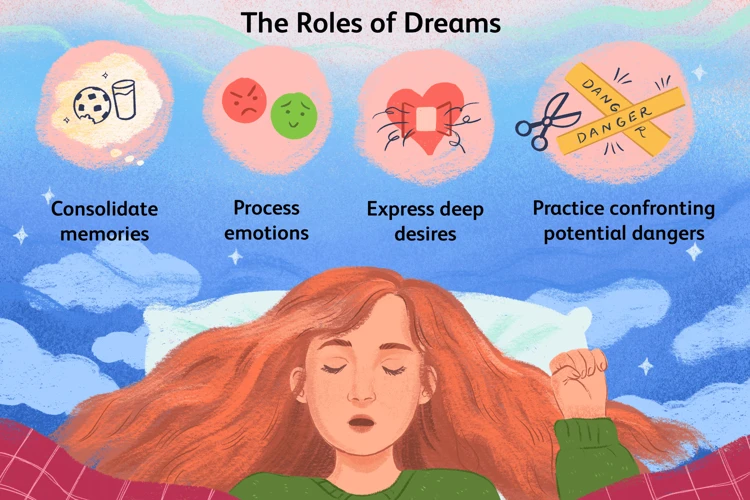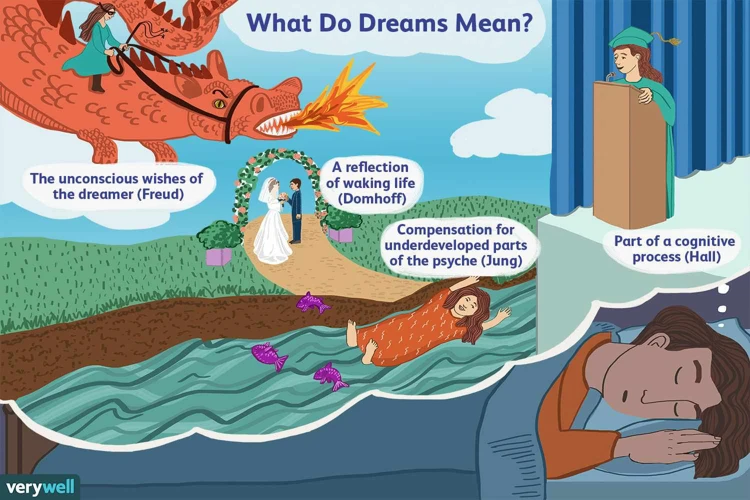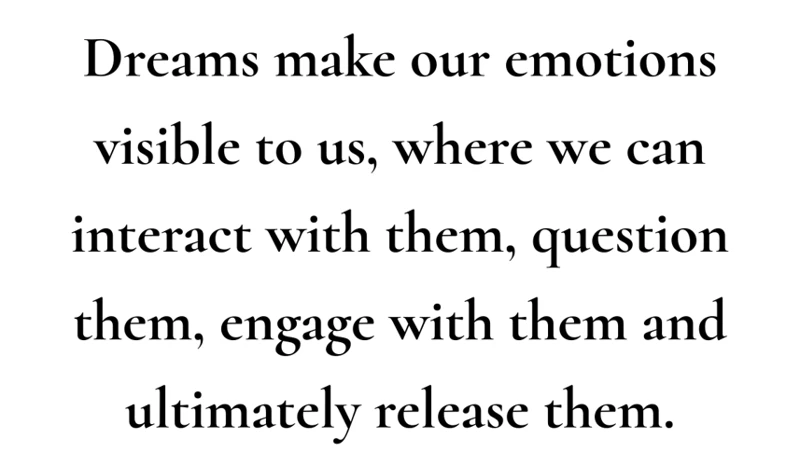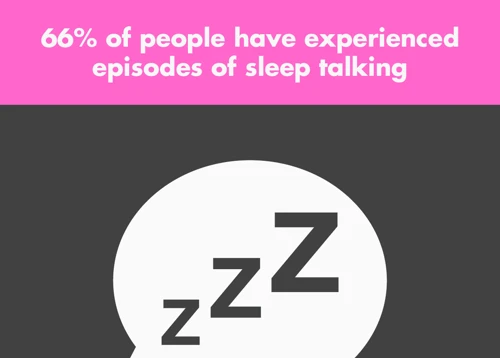Sleep talking is a peculiar phenomenon that has fascinated and puzzled people for centuries. Whether you’ve experienced it yourself or heard someone else do it, sleep talking can be both amusing and perplexing. But what exactly is sleep talking? How common is it? Is it harmless or a sign of an underlying issue? In this article, we will debunk common myths and uncover the facts about sleep talking. We will explore its causes, triggers, and the effects it has on sleep quality. Additionally, we will provide you with practical tips on managing sleep talking to ensure a restful night’s sleep for both the sleeper and their bed partner. So, let’s dive into the world of sleep talking and unravel its mysteries.
Understanding Sleep Talking

Sleep talking is a peculiar behavior that occurs during sleep and involves speaking out loud. Despite its common association with dreams, sleep talking does not necessarily have any meaningful content or connection to what the sleeper is experiencing. It can range from simple mutterings to full sentences and can be quite loud in some cases. Sleep talking is relatively common, with studies estimating that about 5% of adults engaged in this behavior at least once a month. Contrary to popular belief, sleep talking is not limited to certain individuals but can occur in people of all ages and backgrounds. While it is generally harmless, sleep talking can be associated with underlying sleep disorders and may be influenced by stress or anxiety. Understanding sleep talking and its various aspects will help shed light on this intriguing phenomenon and provide insights into its causes and effects. Click here to learn more about the psychological meaning behind sleep talking or here for information on its connection to stress and anxiety.
What is Sleep Talking?
Sleep talking, also known as somniloquy, is a sleep disorder characterized by talking or making vocal sounds during sleep. It occurs when the brain is partially asleep and the muscles responsible for speech production are still active. Sleep talking can range from simple sounds and mumbles to full-blown conversations and speeches. The content of sleep talking can vary greatly and may include fragments of dreams, random words, or even complete sentences. Interestingly, sleep talking is most common during the deepest stage of sleep, known as slow-wave sleep. It can occur at any age and in both genders, although it is more common in children than in adults. Sleep talking can be sporadic, happening on occasional nights, or it can be a regular occurrence. Understanding the phenomenon of sleep talking is essential in order to differentiate it from other sleep disorders and address any concerns. If you’re interested in learning about the different types of sleep talking, you can read more here.
How Common is Sleep Talking?
Sleep talking is relatively common, with studies estimating that about 5% of adults engage in this behavior at least once a month. However, the frequency and intensity of sleep talking can vary widely from person to person. Some individuals may rarely sleep talk, while others may do so frequently. Additionally, sleep talking can occur at any age, from young children to older adults.
The prevalence of sleep talking is higher in children, with approximately 50% experiencing episodes of sleep talking at some point. This is believed to be due to the immaturity of their sleep patterns and brain development. As children grow older, sleep talking tends to decrease, and by adulthood, it becomes less common.
It is important to note that sleep talking can occur in both men and women, and it is not limited to any specific demographic. Studies have shown that there is no significant difference in the prevalence of sleep talking between genders.
Certain factors may contribute to an increase in sleep talking episodes. These factors can include sleep deprivation, alcohol consumption, and certain medications. Additionally, sleep talking can be more likely to occur during periods of high stress or anxiety.
While sleep talking is not considered a rare phenomenon, it is also not an everyday occurrence for most individuals. Its frequency and intensity can vary, and it is influenced by various factors such as age, gender, and external circumstances.
Myths about Sleep Talking

There are several myths surrounding sleep talking that have clouded our understanding of this phenomenon. One common myth is that sleep talking consists of random words or gibberish. While it’s true that sleep talking may sometimes involve incoherent utterances, it can also include coherent sentences and even full conversations. Another myth is that sleep talking is completely harmless. While it is generally not harmful, sleep talking can be a symptom of underlying sleep disorders such as sleep apnea or REM sleep behavior disorder. Lastly, there is a misconception that only certain individuals are prone to sleep talking. In reality, sleep talking can occur in people of all ages and backgrounds. By dispelling these myths, we can gain a clearer understanding of what sleep talking truly entails.
Myth 1: Sleep Talking is Just Random Words
Contrary to popular belief, sleep talking is not simply a jumble of random words. While it may sometimes seem incoherent or nonsensical, there is often a structure to the speech. Sleep talking can range from simple mumblings or partial phrases to complex and complete sentences. The content of sleep talking can vary widely, including conversations, storytelling, or even emotional outbursts. In fact, some individuals have been known to speak in foreign languages during sleep talking episodes, even if they are not fluent in that language when awake. Additionally, the speech patterns and tone during sleep talking can sometimes mirror the individual’s communication style when awake. Although sleep talking may appear random on the surface, it can actually have a level of coherence and meaningfulness. Understanding the complexity and potential meaning behind sleep talking can help dispel the myth that it is just a random collection of words.
Myth 2: Sleep Talking is Harmless
Myth 2: Sleep Talking is Harmless
One common myth surrounding sleep talking is that it is entirely harmless. While it is true that in most cases sleep talking is not a cause for concern, there are instances where it can have negative effects on the individual and their sleep quality. Sleep talking can disrupt the sleep of both the sleeper and their bed partner, leading to fragmented and restless nights. The noise created by sleep talking can be loud enough to wake up the person talking or their bed partner, leading to daytime fatigue and sleepiness. Additionally, if the content of the sleep talking is disturbing or alarming, it can cause anxiety or distress for the person talking and potentially affect their emotional well-being. It is important to note that sleep talking can also be a symptom or side effect of underlying sleep disorders such as sleep apnea or REM sleep behavior disorder. While sleep talking may seem harmless on the surface, it is essential to consider its potential impact on sleep quality and overall well-being.
Myth 3: Only Certain People Sleep Talk
Myth 3: Only Certain People Sleep Talk
One common myth surrounding sleep talking is that only certain individuals engage in this behavior. However, this is far from the truth. Sleep talking can occur in people of all ages and backgrounds, regardless of their personality or characteristics. It is not limited to a specific group of people or personality types. While some individuals may have a higher tendency to sleep talk due to factors such as sleep disorders or stress, it does not mean that others are exempt from experiencing this phenomenon. Sleep talking can happen to anyone, including children, teens, adults, and older adults. It is important to remember that sleep talking is a natural and involuntary behavior that can affect anyone during various stages of sleep. So, if you thought that only certain people sleep talk, it’s time to debunk that myth and recognize that sleep talking is a widespread occurrence that transcends individual differences.
Facts about Sleep Talking

Sleep talking is often misunderstood, but there are several important facts to know about this sleep behavior. Firstly, sleep talking is associated with sleep disorders such as sleep apnea, restless leg syndrome, and sleepwalking. It is not just a random occurrence, but rather a potential symptom of an underlying sleep issue. Additionally, sleep talking can be influenced by stress or anxiety, as it can be a way for the brain to process and express these emotions during sleep. Lastly, sleep talking can occur during any stage of sleep, including deep sleep and REM sleep. This means that everyone is susceptible to sleep talking, regardless of the specific sleep stage they are in. By understanding these facts about sleep talking, we can gain insights into its potential causes and effects, and how to effectively manage it.
Fact 1: Sleep Talking is Associated with Sleep Disorders
Fact 1: Sleep Talking is Associated with Sleep Disorders
Sleep talking may seem like a harmless and trivial behavior, but it can actually be a potential indicator of an underlying sleep disorder. Several sleep disorders have been linked to sleep talking, including:
1. Sleep Apnea: Sleep apnea is a condition characterized by interruptions in breathing during sleep. People with sleep apnea often experience fragmented sleep, leading to disturbances in the sleep cycle. Sleep talking can be a common occurrence among individuals with sleep apnea.
2. REM Sleep Behavior Disorder (RBD): RBD is a parasomnia that involves acting out vivid and often violent dreams during REM sleep. Sleep talking can be a part of this acting out behavior and may indicate the presence of RBD.
3. Sleepwalking: Sleepwalking, also known as somnambulism, is a sleep disorder where individuals engage in complex movements and activities while asleep. Sleep talking can coincide with sleepwalking episodes and is considered part of the sleepwalking phenomenon.
4. Nightmares and Night Terrors: Both nightmares and night terrors are types of parasomnias that can cause intense emotions, fear, and distress during sleep. Sleep talking can occur during these episodes, reflecting the dream states and emotionality associated with these sleep disorders.
5. Insomnia: Although sleep talking itself is not a direct symptom of insomnia, individuals struggling with insomnia may have increased sleep disruption and arousal during the night. This can potentially lead to sleep talking episodes.
It’s important to note that while sleep talking is associated with these sleep disorders, not everyone who sleep talks will have an underlying sleep disorder. However, if sleep talking is frequent, disruptive, or accompanied by other sleep-related symptoms, it may be worth seeking medical evaluation to rule out any potential sleep disorders. Understanding the association between sleep talking and sleep disorders can help individuals recognize when further investigation is warranted and seek appropriate treatment if necessary.
Fact 2: Sleep Talking Can Be Influenced by Stress or Anxiety
Fact 2: Sleep Talking Can Be Influenced by Stress or Anxiety
Sleep talking, as a phenomenon, can be influenced by various factors, and one notable contributor is stress or anxiety. When individuals experience heightened levels of stress or anxiety, it can impact their sleep patterns and behaviors, including sleep talking. Research suggests that increased emotional distress can intensify sleep talking episodes or even trigger them in individuals who do not typically engage in this behavior.
The relationship between stress, anxiety, and sleep talking is complex. Stress and anxiety can disrupt the quality of sleep, leading to more frequent awakenings throughout the night. During these brief periods of wakefulness, a person may engage in sleep talking. The content of the sleep talking may also reflect the anxieties and worries experienced during wakefulness. For instance, individuals with anxiety disorders may exhibit sleep talking episodes dominated by fearful or worrisome themes.
It is important to note that not all instances of sleep talking are tied to stress or anxiety. Sleep talking can still occur independently, without any underlying psychological factors. However, for those who experience frequent or disruptive sleep talking episodes, addressing stress or anxiety levels may be beneficial in managing the frequency or intensity of sleep talking. Employing relaxation techniques, such as deep breathing exercises or mindfulness meditation, may help reduce overall stress and contribute to a more peaceful sleep.
Understanding the connection between stress, anxiety, and sleep talking can provide valuable insights into managing this sleep-related behavior. By addressing and managing stressors in one’s daily life, individuals may experience a reduction in sleep talking episodes and an overall improvement in their sleep quality.
Fact 3: Sleep Talking can Occur during any Stage of Sleep
Fact 3: Sleep Talking can Occur during any Stage of Sleep
Sleep talking is not limited to a specific stage of sleep; it can occur during any stage. Our sleep is divided into several distinct stages, including non-rapid eye movement (NREM) sleep and rapid eye movement (REM) sleep. What makes sleep talking interesting is that it can happen during both NREM and REM sleep.
During NREM sleep, which consists of three stages (N1, N2, and N3), sleep talking might involve mumbling or incoherent speech. This stage is characterized by slower brain waves and is commonly associated with deep sleep. People in this stage are typically less responsive to external stimuli, but they may still engage in sleep talking.
Interestingly, sleep talking can also occur during REM sleep, which is the stage associated with vivid dreams. During REM sleep, our brains are highly active, and our eyes move rapidly. Sleep talking in this stage may be more expressive and coherent, as if the sleeper is actively participating in a conversation. It’s during these dream-filled moments that sleep talking can be the most lively and entertaining.
It’s important to note that sleep talking can happen at any time during these sleep stages and is not exclusive to one or the other. The variations in the content and intensity of sleep talking during different sleep stages add to the mysteries of this unique sleep behavior. Whether someone is expressing simple muttered words during deep NREM sleep or engaging in vivid conversations during REM sleep, sleep talking can occur throughout the night and provide fascinating insights into the activity of the sleeping brain.
Causes and Triggers

The causes of sleep talking can vary, and it is often difficult to pinpoint a specific reason for this behavior. However, several factors have been identified as potential triggers for sleep talking. These triggers can include:
1. Sleep disorders: Sleep talking is commonly associated with other sleep disorders such as sleepwalking, nightmares, and sleep apnea. These conditions disrupt the normal sleep cycle and can increase the likelihood of sleep talking.
2. Stress and Anxiety: High levels of stress or anxiety can contribute to sleep talking episodes. The subconscious mind may express these emotions through verbalization during sleep.
3. Medications and Substance Use: Certain medications, such as sedatives or anti-anxiety drugs, may increase the likelihood of sleep talking. Similarly, alcohol or drug use can affect sleep patterns and lead to sleep talking episodes.
4. Fever or Illness: During times of illness or fever, sleep patterns can be disrupted, leading to sleep talking.
5. Genetics: There is evidence to suggest that sleep talking may have a genetic component. If one or both parents have a history of sleep talking, there is a higher chance that their children will also experience this behavior.
Understanding these causes and triggers can help individuals identify potential factors contributing to their sleep talking episodes. By addressing underlying sleep disorders, managing stress levels, and adopting healthy sleep habits, individuals may be able to minimize the occurrence of sleep talking and improve overall sleep quality.
Causes of Sleep Talking
Sleep talking can be caused by a variety of factors. One possible cause is sleep deprivation. When the body is not getting enough restful sleep, the brain may become more active during sleep, leading to sleep talking. Another potential cause is alcohol consumption. Alcohol acts as a depressant on the central nervous system and can disrupt the sleep cycle, potentially leading to sleep talking episodes. Sleep disorders such as sleep apnea, restless leg syndrome, and insomnia can also contribute to sleep talking. These disorders disrupt the normal sleep patterns and can increase brain activity during sleep, triggering episodes of sleep talking. Additionally, certain medications, such as those used to treat psychiatric conditions or sleep disorders, can have sleep talking as a side effect. It’s important to note that while these factors can contribute to sleep talking, they do not necessarily guarantee that a person will experience it. Each individual’s sleep talking patterns can be influenced by a combination of these causes or may have no identifiable cause at all.
Triggers for Sleep Talking
Triggers for sleep talking can vary from person to person, and identifying these triggers can help manage and reduce the occurrence of sleep talking episodes. Stress and anxiety are often considered common triggers for sleep talking. When individuals experience high levels of stress or anxiety during their waking hours, it can manifest during sleep as sleep talking. Other triggers can include certain medications, sleep deprivation, alcohol consumption, fever, and even sleep disorders such as sleep apnea or REM sleep behavior disorder. It is important to note that triggers for sleep talking can be highly individualized, and what may cause one person to sleep talk might not affect another person in the same way. Keeping a sleep diary and tracking sleep talking episodes along with potential triggers can help identify patterns and potential triggers for an individual’s sleep talking episodes. By identifying these triggers, individuals can work towards managing and reducing sleep talking occurrences.
Effects of Sleep Talking

The effects of sleep talking can have various impacts on both the sleeper and their bed partner. For the sleeper, sleep talking can disrupt the quality of their sleep. The act of talking during sleep can cause brief awakenings, leading to fragmented sleep patterns and a feeling of not being fully rested upon waking. Sleep talking can also be embarrassing or distressing for the sleeper when they become aware of their nighttime chatter. Additionally, it may contribute to feelings of fatigue and daytime sleepiness. On the other hand, sleep talking can also have consequences for the bed partner. The loud or incoherent speech during the night can disturb their sleep, leading to sleep disruptions and potentially causing frustration, irritability, or even strain in the relationship. Creating a sleep-friendly environment and implementing strategies to manage sleep talking can help alleviate these effects and promote a peaceful and restful night’s sleep for both individuals.
Effects on the Sleeper
Sleep talking can have various effects on the individual who engages in this behavior. Firstly, sleep talking can disrupt the quality of their sleep. The act of speaking out loud during sleep can cause brief awakenings, leading to fragmented sleep patterns. This can result in feeling unrested and fatigued during the day. Additionally, sleep talking can also lead to self-consciousness and embarrassment. The sleeper may feel uncomfortable or embarrassed if they are aware that they have been talking in their sleep, especially if the content of their speech is unusual or embarrassing. Sleep talking can sometimes be accompanied by other disruptive sleep behaviors such as sleepwalking or night terrors, which can increase the risk of injuries during sleep. The individual may also experience difficulty falling asleep or staying asleep due to the disruptive nature of sleep talking. The effects of sleep talking on the sleeper can result in daytime sleepiness, emotional distress, and a general decrease in overall sleep quality. It is important for individuals experiencing these effects to seek proper management strategies to improve their sleep and overall well-being.
Effects on the Bed Partner
Sleep talking not only affects the sleeper but also has an impact on the bed partner sharing the same sleeping space. Here are some effects that sleep talking can have on the bed partner:
1. Disruption of Sleep: Sleep talking can result in frequent disruptions to the bed partner’s sleep. The talking, mumbling, or even loud shouting can startle them awake, making it difficult for them to achieve a restful night’s sleep. This can lead to feelings of fatigue, irritability, and decreased productivity during the day.
2. Anxiety and Concern: Sleep talking may cause anxiety and concern for the bed partner. They may worry about the underlying causes of sleep talking or fear that their partner is experiencing distress during sleep. This can create a tense and worrisome environment, impacting the overall quality of their relationship.
3. Embarrassment: Sleep talking episodes can be embarrassing for both the sleeper and the bed partner. The sleep talker may feel self-conscious and uneasy about their unconscious verbalizations. On the other hand, the bed partner may feel embarrassed if the sleep talking occurs in the presence of others, such as when sharing a room during travel or hosting guests.
4. Sleep Disturbances: Continuous sleep disruptions due to sleep talking can lead to sleep deprivation for the bed partner. This can affect their cognitive function, mood, and overall well-being. They may find it challenging to fall back asleep after being awakened by the sleep talking episodes.
5. Strain on the Relationship: The impact of sleep talking on the bed partner’s sleep quality and well-being can strain the relationship. Lack of sleep, increased irritability, and frustration due to the disruptive nature of sleep talking may lead to tension and conflicts between the partners.
It is important for both the sleep talker and their bed partner to communicate openly about the effects of sleep talking and seek support if needed. Understanding and addressing the impact of sleep talking on the bed partner can help maintain a healthy and supportive sleep environment.
Effects on Sleep Quality
Sleep talking can have significant effects on the quality of sleep for both the individual doing the talking and their bed partner. When someone engages in sleep talking, it can disrupt their sleep cycle, leading to fragmented and less restful sleep. The episodes of talking can occur throughout the night, causing frequent awakenings and disturbances. This can result in feelings of daytime sleepiness, fatigue, and difficulty concentrating during the day. The bed partner of a sleep talker may also experience sleep disturbances. The talking can be loud and disruptive, causing them to be awakened during the night. This can lead to sleep deprivation and irritability over time. In some cases, sleep talking can even strain the relationship between the sleep talker and their bed partner, causing frustration and tension. It is essential to address sleep talking and find ways to manage it effectively to improve overall sleep quality for both the individual and their bed partner.
How to Manage Sleep Talking
Managing sleep talking can help improve sleep quality for both the sleeper and their bed partner. Creating a sleep-friendly environment is crucial in minimizing sleep talking episodes. This can include implementing a regular sleep schedule, ensuring a comfortable and quiet sleeping environment, and reducing stress and anxiety through relaxation techniques such as deep breathing or meditation. Consulting a sleep specialist can provide valuable insights and guidance on managing sleep talking, especially if it is associated with an underlying sleep disorder. The specialist may recommend certain interventions or therapies tailored to the individual’s needs. Additionally, keeping a sleep diary can help identify patterns or triggers for sleep talking, which can then be addressed or avoided. Understanding and managing sleep talking can contribute to a more restful and peaceful night’s sleep.
Creating a Sleep-friendly Environment
Creating a sleep-friendly environment is crucial in managing sleep talking and ensuring a peaceful night’s rest. Here are some tips to transform your bedroom into a haven of relaxation:
1. Optimize the Lighting: Ensure that your bedroom is dark and conducive to sleep. Consider using blackout curtains or blinds to block out any external light sources. Dim the lights before bedtime to signal to your body that it’s time to sleep.
2. Control Noise Levels: Eliminate or reduce any disruptive noises that may disturb your sleep. Use earplugs, a white noise machine, or a fan to create a soothing background noise that can drown out any disturbances.
3. Choose a Comfortable Mattress and Pillow: Invest in a high-quality mattress and pillow that provide adequate support and comfort for your body. This will help alleviate any physical discomfort that may contribute to sleep talking.
4. Keep the Room Cool: Maintain a cool and comfortable temperature in your bedroom. The ideal temperature for sleep is generally between 60 to 67 degrees Fahrenheit (15 to 19 degrees Celsius). Use breathable bedding and adjust the thermostat accordingly.
5. Create a Relaxing Ambiance: Decorate your bedroom in a way that promotes a sense of calm and relaxation. Choose soothing colors, such as soft blues or muted earth tones, and incorporate elements like plants or nature-themed artwork.
6. Establish a Bedtime Routine: Develop a consistent bedtime routine that allows you to unwind before sleep. Engage in relaxing activities such as reading a book, taking a warm bath, or practicing relaxation techniques like deep breathing or meditation.
By implementing these strategies, you can create a sleep-friendly environment that promotes better sleep and reduces the likelihood of sleep talking. Remember, consistency is key, so try to establish and maintain these practices consistently for optimal results.
Consulting a Sleep Specialist
Consulting a sleep specialist can be a valuable step in managing sleep talking and addressing any underlying sleep disorders. Sleep specialists are medical professionals who specialize in diagnosing and treating sleep disorders. They have extensive knowledge and experience in understanding the complexities of sleep and can provide expert guidance tailored to individual needs.
When considering consulting a sleep specialist for sleep talking, it is important to gather relevant information beforehand. Keep track of the frequency, duration, and intensity of your sleep talking episodes. Note any patterns, triggers, or other sleep-related symptoms that you may be experiencing. This information will help the sleep specialist evaluate your condition more effectively.
During the consultation, the sleep specialist will conduct a thorough assessment, which may include an interview about your sleep habits, medical history, and lifestyle factors. They may also recommend a sleep study, such as a polysomnography, to monitor your sleep patterns and identify any underlying sleep disorders that may be contributing to sleep talking. This study involves monitoring brain waves, breathing, and other physiological parameters during sleep.
Based on the findings, the sleep specialist will provide recommendations for managing sleep talking. They may suggest lifestyle changes, such as improving sleep hygiene, establishing a regular sleep schedule, and reducing stress levels. In some cases, they may prescribe medications or therapies targeted at treating any underlying sleep disorders.
It is essential to follow the guidance and treatment plan provided by the sleep specialist consistently. They will monitor your progress and make necessary adjustments as needed. Regular follow-up visits may also be scheduled to assess your response to treatment and make any further modifications.
Remember that consulting a sleep specialist not only helps in managing sleep talking but also addresses any potential sleep disorders that may be impacting your overall sleep quality and well-being. Taking proactive steps to seek professional guidance can significantly improve your sleep and overall health.
Using Relaxation Techniques
Using relaxation techniques can be an effective way to manage sleep talking and promote a more peaceful sleep environment. One technique that can be helpful is deep breathing exercises. By focusing on slow, deep breaths, you can calm your body and mind before bedtime. Another technique is progressive muscle relaxation, where you systematically tense and release each muscle group in your body, promoting physical relaxation. Additionally, incorporating mindfulness or meditation practices into your bedtime routine can help reduce stress and anxiety, which can contribute to sleep talking. These practices involve being present in the moment and cultivating a sense of calm and relaxation. Guided imagery, where you visualize serene and peaceful scenes, can also be beneficial in creating a tranquil mindset before sleep. It’s important to find relaxation techniques that work best for you and incorporate them consistently into your bedtime routine. Remember, consistency is key when it comes to managing sleep talking through relaxation techniques. By incorporating these techniques, you may find that your sleep becomes more restful and peaceful, allowing both you and your bed partner to enjoy undisturbed nights.
Conclusion
In conclusion, sleep talking is a fascinating and mysterious phenomenon that occurs during sleep. It is not limited to certain individuals and can happen to people of all ages and backgrounds. While sleep talking is generally harmless, it can be associated with underlying sleep disorders and can be influenced by stress or anxiety. It can occur during any stage of sleep and may have various triggers. Sleep talking can have effects on the sleeper, their bed partner, and overall sleep quality. Managing sleep talking involves creating a sleep-friendly environment, consulting a sleep specialist if necessary, and using relaxation techniques. By understanding the myths and facts surrounding sleep talking, we can better comprehend this intriguing behavior and find ways to manage it effectively. So, the next time you or someone you know engages in sleep talking, remember that it is a natural and common phenomenon that can be managed and understood.
Frequently Asked Questions
What causes sleep talking?
Sleep talking can be caused by various factors, including sleep disorders, such as sleep apnea or REM sleep behavior disorder, certain medications, fever, stress, or mental health conditions.
Is sleep talking hereditary?
There is evidence to suggest that genetics may play a role in sleep talking. If a close family member, such as a parent or sibling, sleep talks, it increases the likelihood of someone else in the family experiencing it as well.
Can sleep talking be treated?
While there is no specific medication or treatment specifically for sleep talking, addressing underlying sleep disorders, reducing stress, and improving sleep hygiene can help manage sleep talking symptoms.
Can sleep talking be a sign of a more serious sleep disorder?
Yes, sleep talking can sometimes be associated with more serious sleep disorders, such as sleepwalking, sleep apnea, or narcolepsy. If you have concerns about your sleep talking, it is advisable to consult a sleep specialist.
Is sleep talking more common in children or adults?
Sleep talking is more common in children, particularly between the ages of 3 and 10. However, it can occur in adults as well, with around 5% of adults experiencing sleep talking on a regular basis.
Can sleep talking be disruptive to sleep quality?
In some cases, sleep talking can disrupt the sleep quality of the individual engaged in it as well as their bed partner. Loud or frequent sleep talking may lead to disturbed sleep and daytime fatigue.
Can sleep talking be dangerous?
In general, sleep talking is not considered dangerous. However, if a person engages in activities such as sleepwalking or violent outbursts during sleep talking, it can pose a risk to their safety and should be addressed with a healthcare professional.
Can sleep talking be influenced by alcohol or drugs?
Yes, consuming alcohol or using certain drugs can increase the likelihood of sleep talking. These substances can disrupt the normal sleep cycle and lead to the occurrence of sleep talking episodes.
Does sleep talking occur during specific stages of sleep?
Sleep talking can occur during any stage of sleep. However, it is most commonly observed during the transition between non-REM and REM sleep, when dreaming is more prevalent.
Can sleep talking be a symptom of other sleep disorders?
Yes, sleep talking can sometimes be a symptom of other sleep disorders, such as insomnia, sleepwalking, night terrors, or sleep-related eating disorder. If you are experiencing sleep talking along with other sleep-related issues, it is important to consult a healthcare professional for a proper diagnosis.








